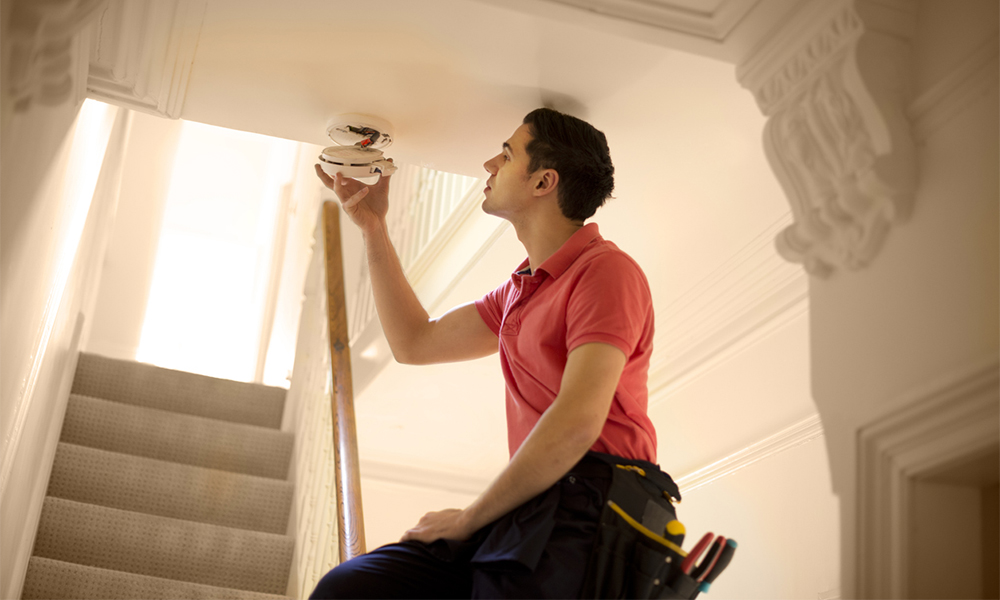Best Practices and Safety Tips for Apartment Managers

The best way to save money on insurance is to lower your risk profile and avoid claims. In addition to the practices covered in our article on building a property profile, these safety tips can help managers of apartment, co-op and condominium buildings keep their properties in tip-top shape.
Improve Your Building Risk Profile
Dryer vents
Lint can accumulate in plastic, vinyl and metal flex pipe, creating a fire hazard. Replace these ducts with rigid or semi-rigid pipe, joined with tape and with as few turns as possible. In addition, inspect and clean these vents regularly to prevent lint build-up.
Washing machines and hot water heaters
When they get old or malfunction, these appliances can cause significant water damage on any lower floors. Install “drip” or drain pans to catch and/or drain any excess water that escapes. Replace washing machine supply hoses with “burst-proof” or “burst-resistant” hoses, which are thicker or have an outer covering that is reinforced with braided steel.
Smoke detectors
Replace the batteries in battery-powered smoke detectors every six months. Keep a log to document inspection, detector testing, and battery replacement in each unit. When replacing smoke detectors, state law in New York and New Jersey require installation of hard-wired or lithium-battery detectors, which last 10 years.
Carbon monoxide detectors
Carbon monoxide (CO) detectors/alarms must be installed in all new and existing one- and two-family units, multi-family units and rentals that have any fuel-burning appliances, systems or attached garages. This includes oil, natural gas, propane, etc.
Fire extinguishers
Provide portable fire extinguishers in high-hazard areas, such as boiler rooms, electrical rooms and laundry areas. Service each unit annually.
Circuit breakers
Install ground-fault circuit interrupter (GFI) electrical receptacles in areas where the receptacle is within six feet of a water source, such as kitchens, bathrooms and laundry rooms. These units help reduce the risk of electrical shock.
Lighting
Install emergency lighting with battery back-up power in interior hallways and common spaces. Test these units every 30 days for 30 seconds, and document all testing. Ensure that walkways and parking lots have adequate lighting.
Security
Common entryway doors should have self-closing, automatic locking devices. Check with municipal authorities for any local codes that may apply.
Grills
As a general rule, gas grills should not be permitted on decks or within 10 feet of the building. Charcoal grills should be prohibited. Where stricter, any state or local ordinances should be followed.
Tree limbs
Cut back any limbs that overhang buildings to reduce the risk of roof damage in a high-wind situation.
Gutters
Clean, inspect and repair all gutters each year, before winter but after autumn has deposited the leaves. Keeping gutters clear will prevent clogging, overflowing and ice damming.
Pipe maintenance
To prevent pipes from freezing in the winter, leave thermostats in each unit set on at least 60 degrees. Open cabinet doors below sinks in the kitchen and baths and in unoccupied rooms to allow heat to circulate.
Snow removal
Maintain a log to document all snow removal, including the date, weather conditions and actions taken (plowing, shoveling, sanding and salting).
Certificates of Insurance (COI)
Secure this documentation annually from all contractors that work on the property. Their limits of liability should at least equal that of your own policy.
Tenant insurance
If allowed by law, require or encourage tenants or condo owners to purchase insurance that covers liability and the contents of their unit.
Do you have any questions? Did we miss any safety tips? Would you like a free insurance review? Please call us at 877-576-5200.


Comments (0)